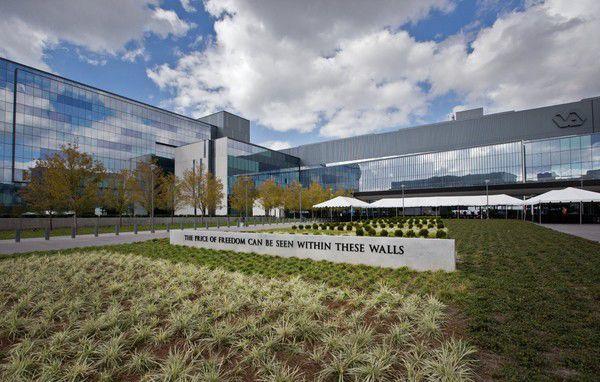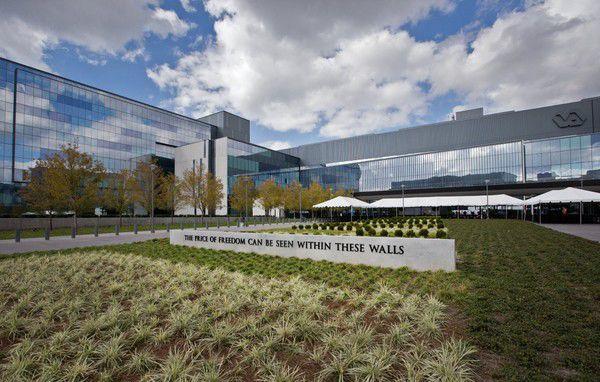
Three New Orleans healthcare providers have been recognized as “LGBT Healthcare Equality Leaders” by the Human Rights Campaign Foundation for their commitment to provide inclusive environments for their LGBT (lesbian, gay, bi-sexual, transgender) patients and employees.
A total of seven Ochsner locations — including Ochsner Baptist, the Ochsner Medical Centers on Jefferson Highway, Kenner, North Shore and its West Bank Campus — as well as the New Orleans Veterans Administration Hospital and the Crescent Care Community Health Center were recognized in the HRC Foundation’s annual Healthcare Equality Index (HEI) released March 27.
The index scores facilities on their policies and practices aimed at creating more inclusive environments for LGBT patients, visitors and employees. This year, 626 healthcare facilities around the U.S. participated in the survey. Providers can elect to participate and are graded in the areas of LGBT patient-centered care, LGBT patient services and support, employee benefits and policies, and LGBT patient and community engagement. To earn a healthcare equality leader designation, the facility has to score a 100 in each of these categories.
The HEI was created to address health disparities and inequalities LGBT patients can sometimes experience in healthcare settings. About 52 percent of transgender patients and 9 percent of lesbian, gay and bisexual respondents said they believed they would be refused medical services because of their LGBT status, according to the index.
The survey showed remarkable progress among participating facilities, including a 63 percent increase (70,000 hours) across the board in LGBT care training across all 626 hospitals surveyed over the past year.
The release of the 2018 HEI coincided with the deadline for public comments on a proposed “conscience” regulation at the U.S. Department of Health and Human Services. The proposal would protect health care providers who refuse to perform, accommodate, or assist with certain health care services based on religious or moral grounds.
If approved, it would allow a provider to file a complaint under the Federal Health Care Provider Conscience Protection Statute, if they feel they have been discriminated against for objecting or refusing to participate in medical procedures — such as abortion, sterilization or sex reassignment surgeries — that go against the provider’s religious or moral beliefs.
This was the second year in a row the VA Southeast Louisiana Healthcare System was recognized by the HRC Foundation for their care for LGBT patients. They provide mental health services, pre and post-surgery care for transgender patients, and offer a transgender support group that meets every Friday, which is coordinated by a licensed clinical worker, among their services for this patient population.
The clinical worker, Danielle Rosenfelv started the group about five years ago. At the time, the participants were mostly transgender women older than 50.
“Now we serve just as many trans men and people as young as early as in their 20s,” she said. “We have a large population of transgender veterans, and there is a commitment by the VA to serve all of those who have served.”
In 2013, the VA issued a directive to standardize care for LGBT veterans, including creating non-discrimination policies for veterans and their families, creating guidelines for access to care for transgender and intersex veterans and increasing information and training to providers on topics related to LGBT health.
It’s estimated that over 134,000 American veterans are transgender, and over 15,000 transgender people serve in the military today, according to the National Center for Transgender Equality.
Ochsner has focused on standardizing training for all employees and establishing non-discrimination policies throughout the system, explained Dr. Brandy Panunti, an endocrinologist at Ochsner who works with transgender patients.
This includes establishing the correct coding when a provider needs to order gender-specific exams (i.e. pelvic exams) so a transgender patient isn’t denied coverage because the needed exam does not match the gender listed on their documents.
“How people identify may not be reflected in their legal documents or on their insurance,” Panunti said.
In a 2015 U.S. Transgender Survey, transgender people reported experiencing denial of care because staff were not trained to “code” gender-specific exams.
“Overall, the health system is a slow one, and we have a lot of catching up to do,” said Panunti.
Of the hospitals that did not participate in the Healthcare Equality Index but were scored based on research over the past year, 63 percent have patient non-discrimination policies including both sexual orientation and gender identity, and 53 percent have LGBT-inclusive employment non-discrimination policies. About 93 percent had equal visitation policies.
This is the third year in a row that CrescentCare received the Leader in LGBT Healthcare Equality designation. The federally qualified health center began in 1983 as the NO/AIDS Task Force, a non-profit dedicated to fighting the AIDS epidemic in New Orleans.
“Dignity for patients and employees has always been at the heart of CrescentCare’s mission, going back to our foundation as NO/AIDS Task Force,” said Augustin Correro, a spokesperson for CrescentCare.
“The steps toward inclusion and affirmation are such simple ones to take but are immensely meaningful to so many people. As an organization that wouldn’t exist without the dedication of the LGBT community, we promise to continue showing our dedication every day,” he said.
The full Healthcare Equality Index can be seen here.
Correction: This story originally said that nine Ochsner locations received the healthcare equality leader designation. The correct number is seven.
Maria Clark writes about health, doctors, patients and healthcare in Louisiana for NOLA.com | The Times Picayune and NOLA Mundo. Reach her at mclark@nola.com or 504.258.5306. Or follow her on Twitter at @MariaPClark1.

